In today's world, businesses that prioritize ethical practices not only foster community goodwill but also enhance their brand reputation. One powerful way to showcase your commitment to these values is through strategic sponsorships that align with your mission. By partnering with local organizations or initiatives, you can make a meaningful impact while encouraging others to join the movement. Curious to learn how to craft the perfect sponsorship proposal? Keep reading!

Clear Purpose Statement
In ethical business sponsorship, a clear purpose statement serves as a foundation for mutual benefit between sponsors and community initiatives. This statement articulates the sponsor's commitment to responsible corporate practice while promoting values such as sustainability, social responsibility, and community engagement. For instance, a local company, EcoClean Solutions, aims to partner with the Green Future Festival, emphasizing its dedication to environmental sustainability. Their purpose statement highlights a focus on reducing plastic waste, supporting renewable energy projects, and enhancing community awareness about eco-friendly practices. Such clarity not only guides sponsorship decisions but also fosters trust and collaboration between businesses and the communities they serve, ultimately driving positive social and environmental change while enhancing brand reputation.
Alignment with Company Values
A robust ethical business sponsorship entails a commitment to shared values, fostering a partnership that resonates with both organizational missions. For example, companies like Patagonia emphasize environmental sustainability while collaborating with non-profits, enhancing community initiatives related to climate action. When seeking sponsorship, it is crucial to highlight mutual commitments to transparency, social responsibility, and community engagement. Alignment with these core principles not only bolsters brand reputation but also fosters consumer trust. Notable instances such as Coca-Cola's support for health and wellness programs reflect alignment with corporate social responsibility (CSR), showing how businesses can support initiatives that resonate with their audience's values while creating a positive societal impact.
Specific Sponsorship Benefits
Ethical business sponsorship provides various specific benefits that enhance brand reputation, increase visibility, and foster community goodwill. Engaging with high-profile community events, such as the annual Green City Festival in San Francisco, can showcase a commitment to sustainability and social responsibility. Partnerships with local nonprofits, like Habitat for Humanity in New Orleans, offer opportunities for employee volunteer days, strengthening team bonds and improving morale. Additionally, sponsorships can lead to strategic networking opportunities with other businesses and thought leaders, evident at industry conferences such as the B Corporation Champions Retreat. By aligning with ethical initiatives, brands can significantly boost customer loyalty, particularly among the millennial demographic, which prioritizes conscious consumerism.
Mutual Partnership Opportunities
Sponsoring community events fosters positive brand recognition and reinforces corporate social responsibility. Ethical businesses, such as local organic farms and eco-friendly product manufacturers, can significantly benefit from engaging in sponsorships with nonprofit organizations and community initiatives. For instance, partnering with events like the annual Green Festival in San Francisco, which attracts over 30,000 environmentally conscious attendees, offers significant visibility and alignment with the values of sustainability. Through mutual partnerships, both parties can cultivate a strong community presence, enhancing brand loyalty and driving customer engagement. In addition, shared social media promotion can expand reach, amplifying messages around sustainability and community support.
Call to Action
In today's competitive landscape, businesses have the unique opportunity to foster positive change through ethical sponsorships. Engaging in partnerships that promote social responsibility can significantly enhance brand reputation and consumer trust. Numerous studies indicate that 70% of consumers are more likely to support businesses that demonstrate a commitment to ethical practices (e.g., supporting local charities or sustainable initiatives). By aligning with organizations that advocate for impactful causes, such as environmental sustainability or educational programs, companies can not only contribute to community welfare but also attract a loyal customer base eager to support ethical endeavors. As businesses explore sponsorship possibilities, they should consider the potential for collaborative campaigns that drive awareness and action, ultimately benefiting both the organizations involved and the communities they serve.

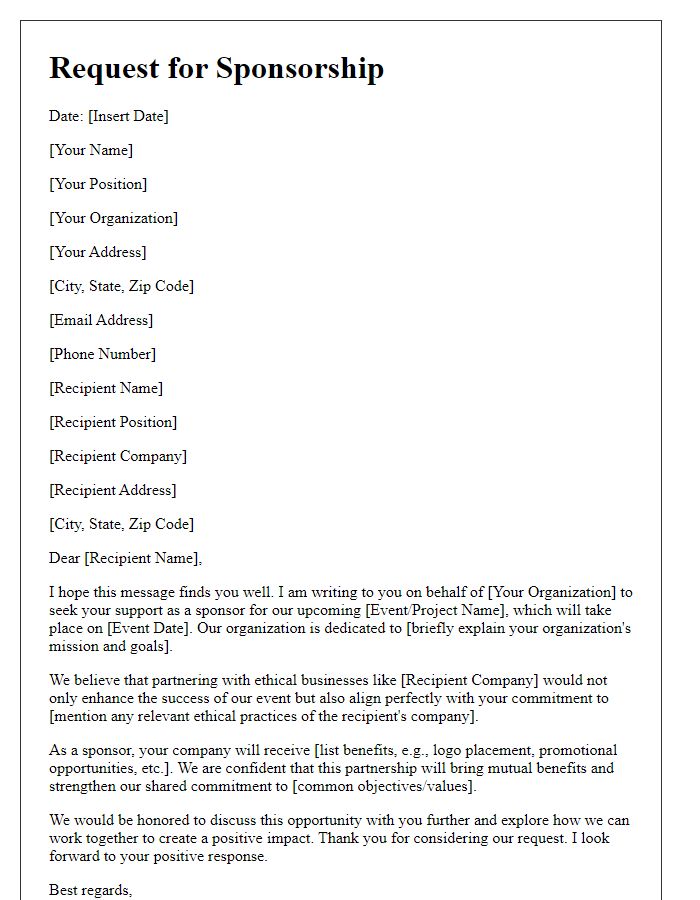
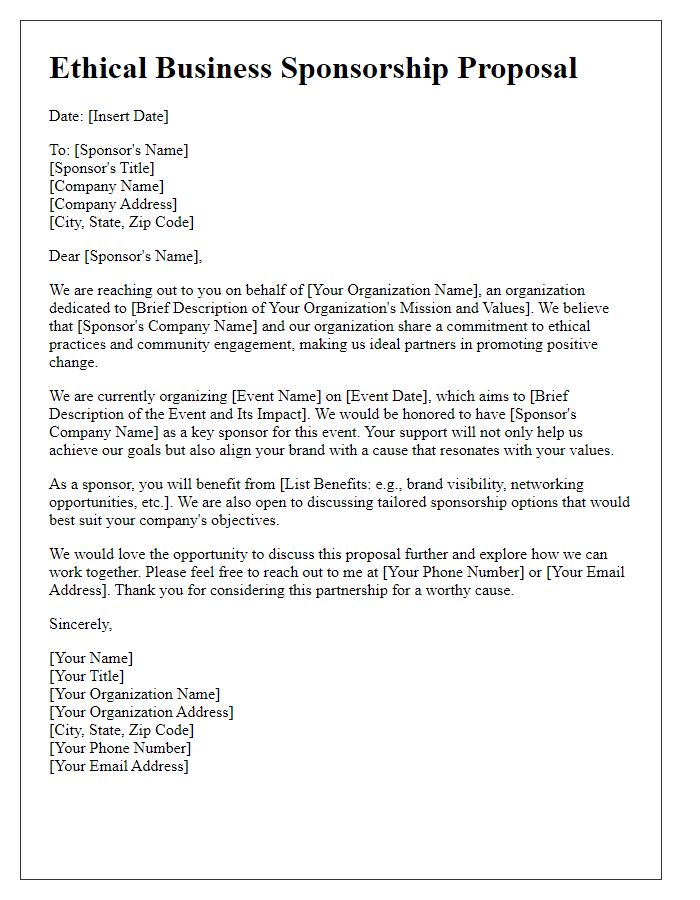
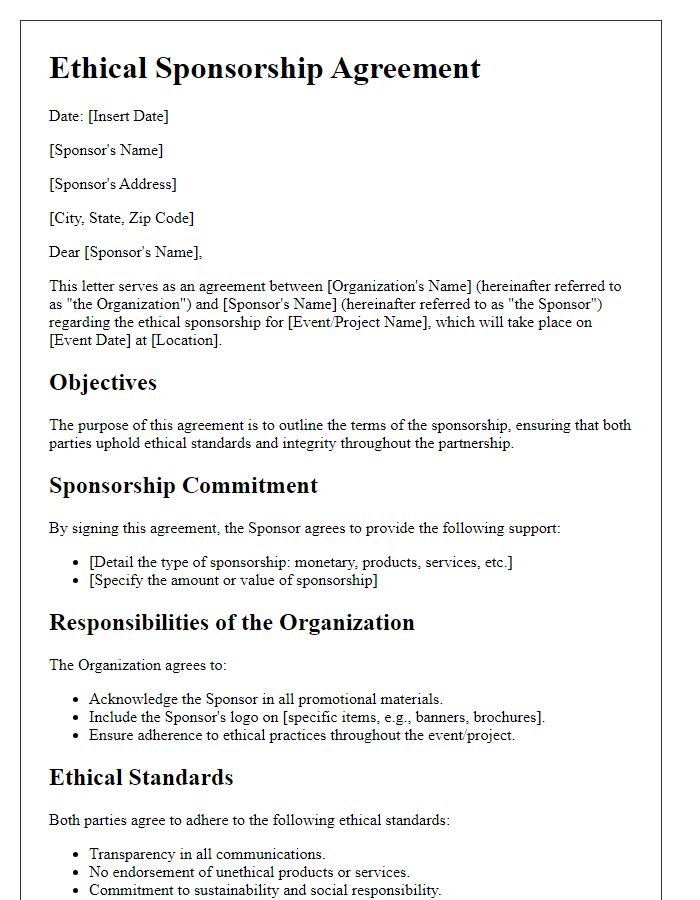
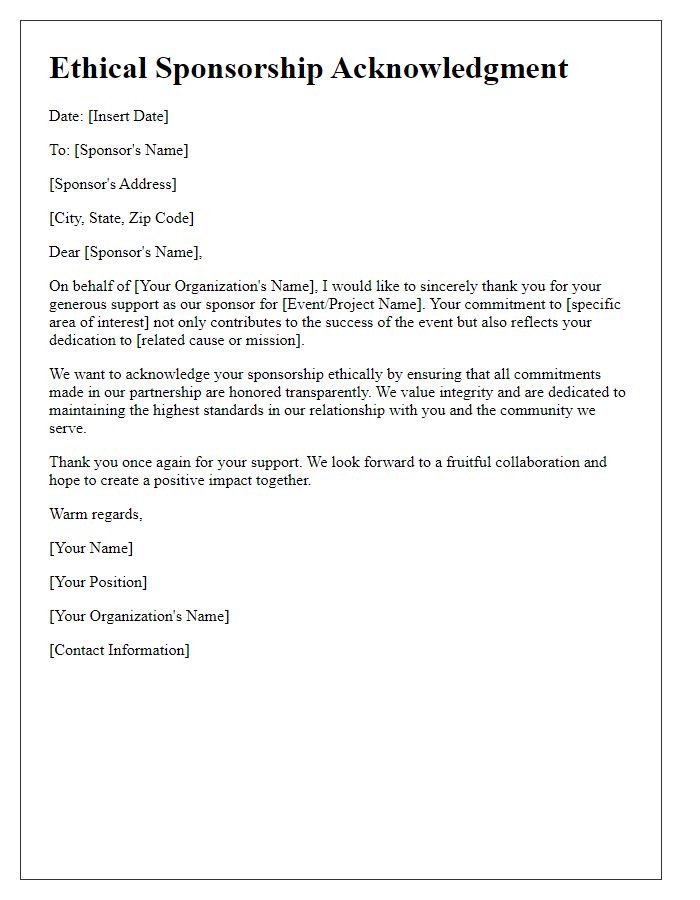
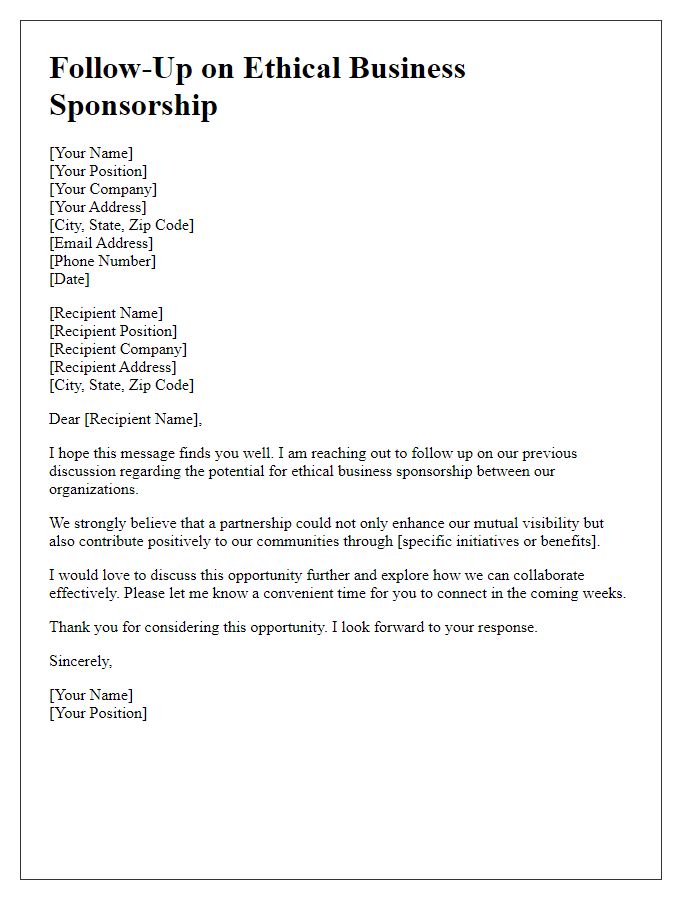
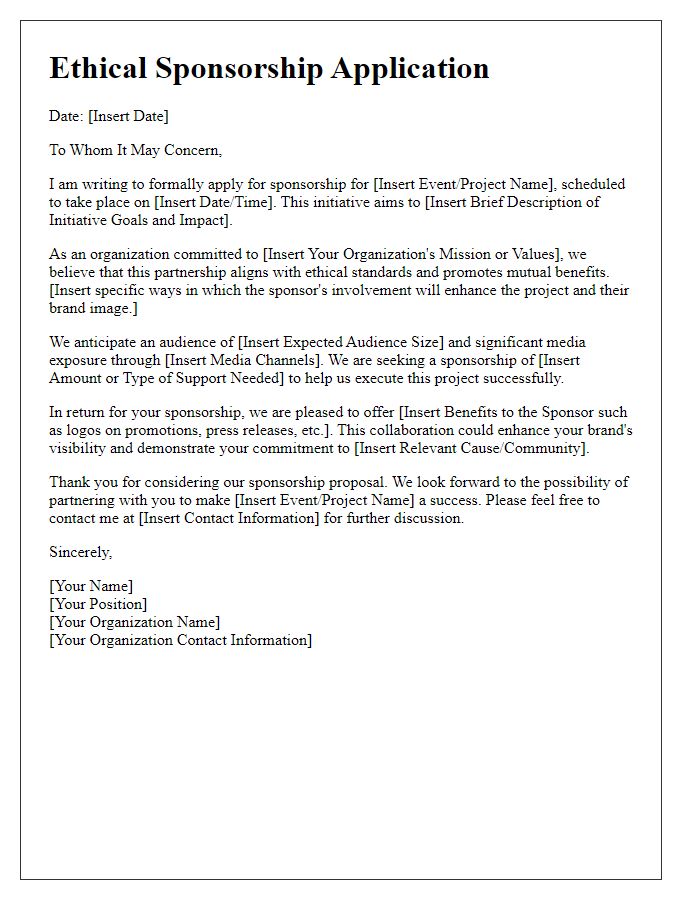
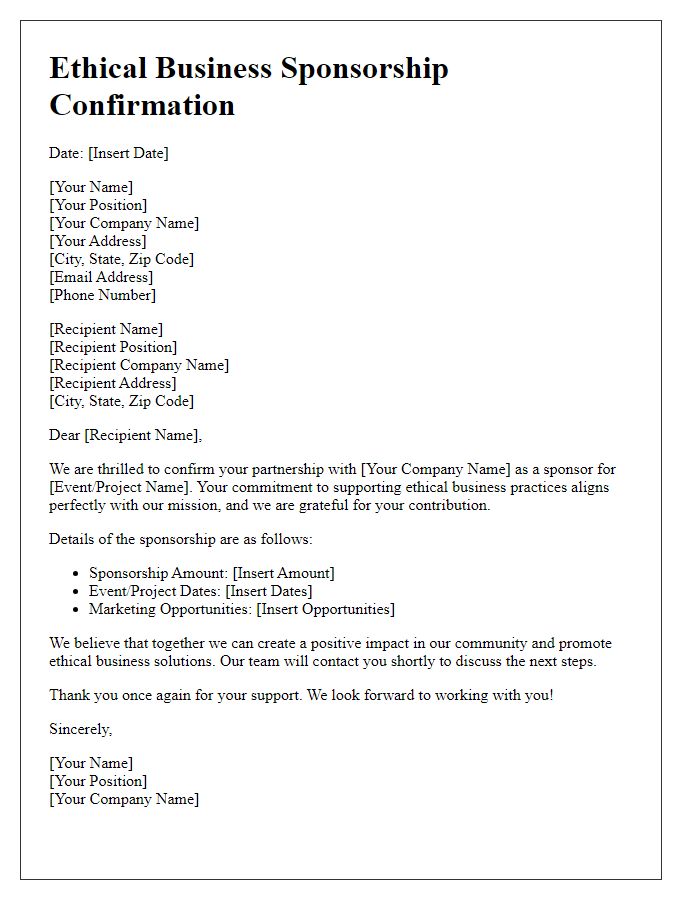
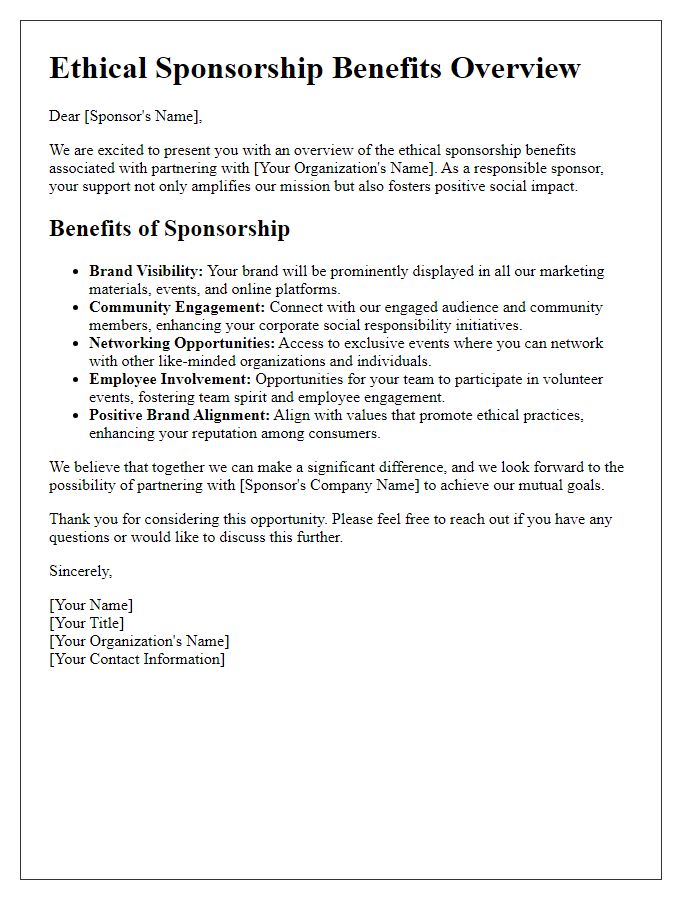
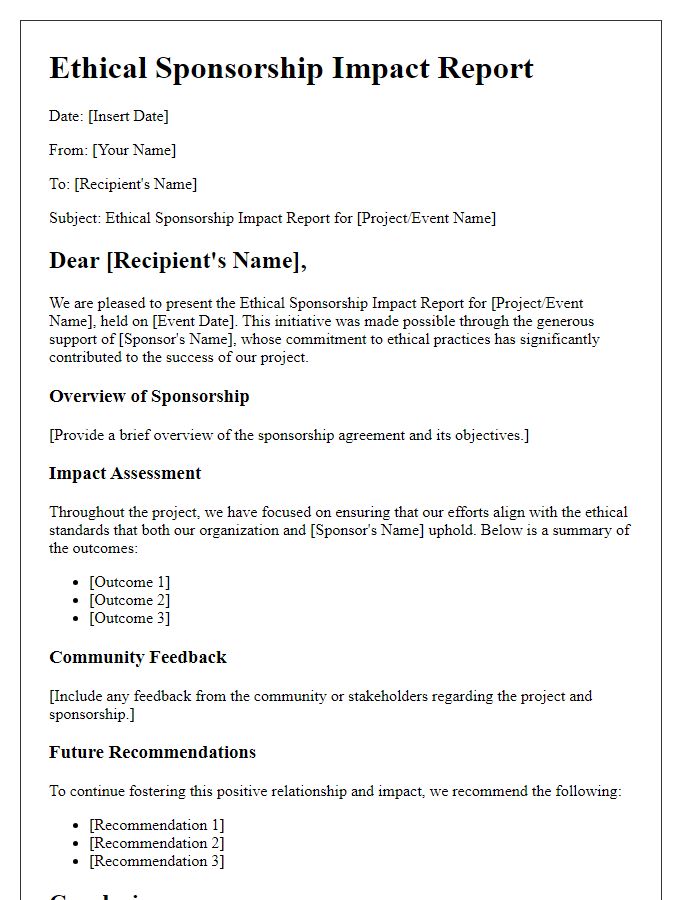
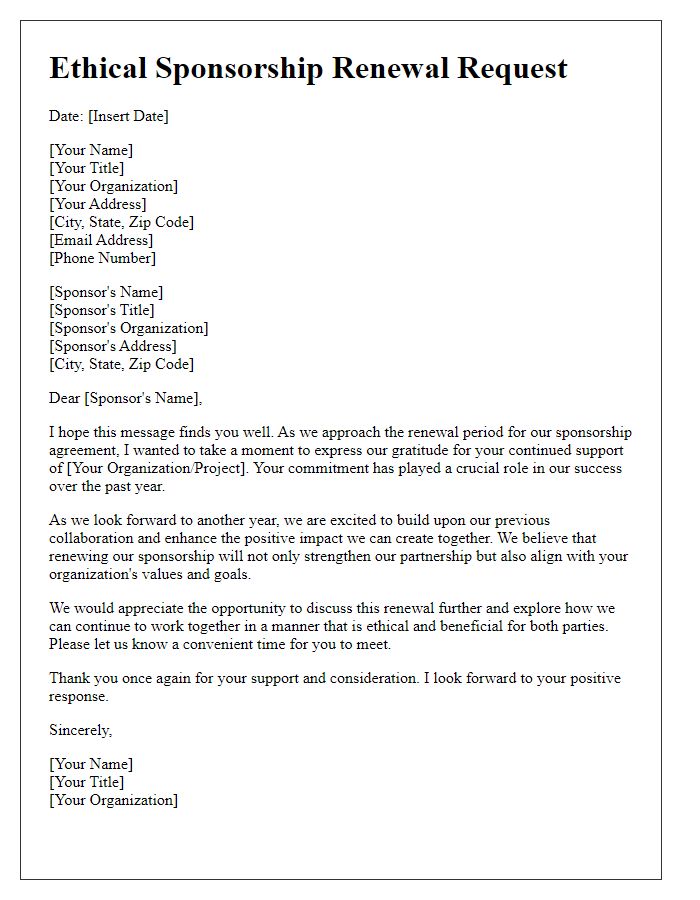


Comments